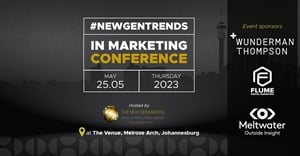
Subscribe & Follow
Jobs
- Part time: Bookkeeper / Financial Controller Cape Town
- Financial Advisor Durban
- Financial Advisor Cape Town
- Financial Advisor George
- Financial Advisor Gauteng
- Financial Manager East Rand
- Financial Accountant Cape Town
- Financial Advisor Cape Town
- Financial Advisor Gauteng
- Financial Advisor George
Are brokers future-ready?

When asked whether they were concerned about their futures in financial planning given the rise of digital developments, most said they were concerned, but hopeful. However, some indicated real concerns about the profession’s sustainability.
Times are changing, rapidly, but it’s a natural human response to resist change and keep doing what we’ve always done.
Customers increasingly demand solutions that are simple, fast and effortless, yet personalised. These expectations are shaped, not by other life insurance experiences, but their experiences in other industries – notably other digital platforms, says Petrie Marx, product actuary at Sanlam.
"Intermediaries need to become phygital. Where does the physical stop and the digital begin? The lines are getting increasingly blurred. Intermediaries should capitalise on this through hybrid models, and be equally comfortable to serve their customers through physical and digital interactions.”
Why we don’t like change
Toby Shapshak, editor-in-chief and publisher of Stuff magazine, believes our resistance to change stems from nostalgia and how we’re wired. “Our brains are truly remarkable. Everything on this planet is the result of our forebrains. The problem is our brains respond to the environment and stimulus they’re in, and that environment has radically changed from 300,000 years ago when homo sapiens became the dominant species on the planet…our brains are configured for an environment that no longer exists.”
He added that ‘neurons that fire together, wire together’. The way we do things and think about things creates ‘pathways’ in the brain. These make it easier for us to handle similar circumstances – the way we’ve always done things – but not change. Which is a problem in a world that’s changing at pace.
Shapshak used the example of the wireless – a wireless radio to his grandfather; something else entirely to us today. “The pace of technological change now compared to ten years ago is amazing.” He added that young people use tech in completely different ways, which calls for brokers to communicate with them differently. “You must evolve to a point where you are interacting with your customer in the format the customer wants.”
How we can use ‘behavioural techonomics’ to effect change
Behavioural economist Erik Vermeulen said we don’t just need to accept change; we need to create it. “The easiest way to embrace change is to expect it, and when it happens, to accept it – because we can’t kick against it. Then, we need to create our own change. When I focus on behaviour and decision-making and start thinking about what I can do to create my own change to nudge my clients forward, then I become an agent of change rather than a victim of it.”
Vermeulen mentioned a few behavioural economics principles applicable to the broker space – and business, generally:
- The importance of empathy. Why go to a doctor when you can often diagnose yourself via the web? Because you want face-to-face reassurance and empathy from someone you trust. Same goes for why clients seek relationships with brokers. Our need for connectedness won’t change.
- Acknowledge we’re irrational. People are irrational and we make decisions based on emotions. It turns out we also don’t always know what we want. When Pepsi won a blind Coke vs Pepsi taste test, Coke launched ‘new Coke’, which flopped. Turns out, people wanted the ‘old’ Coke – they just didn’t know that’s what they wanted. Businesses are linked to emotions. The ‘likeability’ measurement is the most efficient prediction of sales. So, brokers need to build positive associations with their brands.
- A great brand is a promise made and kept. Additionally, clients want: a sense of perceived control, a sense of progress, to feel connected, and to be part of a shared vision and meaning. Brokers need to consider how to build connected tribes around their brands.
- We can use insights to nudge behaviour. And to overcome innate biases. That’s where big data plays a big role. It’s about a partnership model. With any relationship, it starts with glee, then there’s a fee – some issues/ niggles start to emerge – then there’s an urge to flee, but we choose to stay because we see what’s possible through ‘we’. It’s up to brokers to show clients what’s possible through a sustained relationship.
- It’s about knowing your client… really knowing them. Vermeulen says there are four kinds of people – analytical, expressive, amiable and driver – so brokers need to know their clients’ type and interact with them accordingly. For example, an analytical person needs detail, while an expressive person prefers the big picture.
So, are you ready?
Jacques Coetzer, general manager at Sanlam Broker Distribution, outlined how he believes the broker value proposition will evolve in the context of the fourth industrial revolution.
- Understand your clients and their needs. The best way to know what they want from a relationship with you? Ask.
- Consider what will really set your value proposition apart. What must you do in person? Can technology do the rest? What’s important to the client and how do you deliver this?
- Understand the ‘advice compression’ conundrum. Your time available to influence the buying journey is limited. People research online and purchase offline with insurance. So, how do you tailor your model to this?
- Consider how the financial plan you offer can add value to your customers beyond individual product purchases – this can already be done via different channels.














